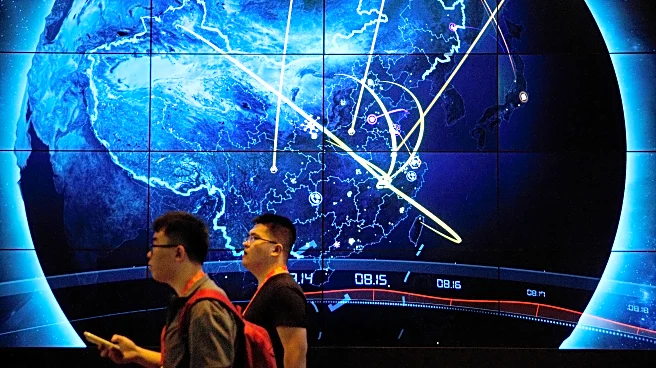What's Happening?
China has announced that it has found 'irrefutable evidence' of cyber attacks by the US government on its National Time Service Center. According to a statement from the Ministry of State Security, the US National Security Agency
exploited vulnerabilities in the mobile phones of some employees at the center to gain access to sensitive information. The attacks reportedly began on March 25, 2022, and targeted the agency responsible for timekeeping in China. This revelation was made public through the Ministry's official WeChat account, highlighting ongoing tensions between the two nations in the realm of cybersecurity.
Why It's Important?
The accusation of cyber attacks by China against the US government underscores the escalating cyber warfare between major global powers. Such incidents can strain diplomatic relations and impact international cooperation on cybersecurity. The revelation may lead to increased scrutiny and defensive measures by other nations concerned about their own cybersecurity vulnerabilities. For the US, this could result in heightened tensions with China, potentially affecting trade negotiations and other diplomatic engagements. The broader implications for global cybersecurity practices are significant, as nations may ramp up their security protocols and invest more in cyber defense technologies.
What's Next?
The disclosure of these cyber attacks may prompt China to take retaliatory measures or seek international support to address the issue. The US government might respond by either denying the allegations or engaging in diplomatic discussions to resolve the matter. This situation could lead to further investigations and possibly sanctions or other diplomatic actions. Additionally, other countries may reassess their cybersecurity strategies and alliances in light of this development, potentially leading to a shift in global cybersecurity dynamics.
Beyond the Headlines
The incident highlights the ethical and legal challenges in international cyber operations. It raises questions about the boundaries of state-sponsored cyber activities and the need for international norms and agreements to govern such actions. The long-term impact could include a push for more robust international cybersecurity frameworks and cooperation to prevent similar incidents in the future.













